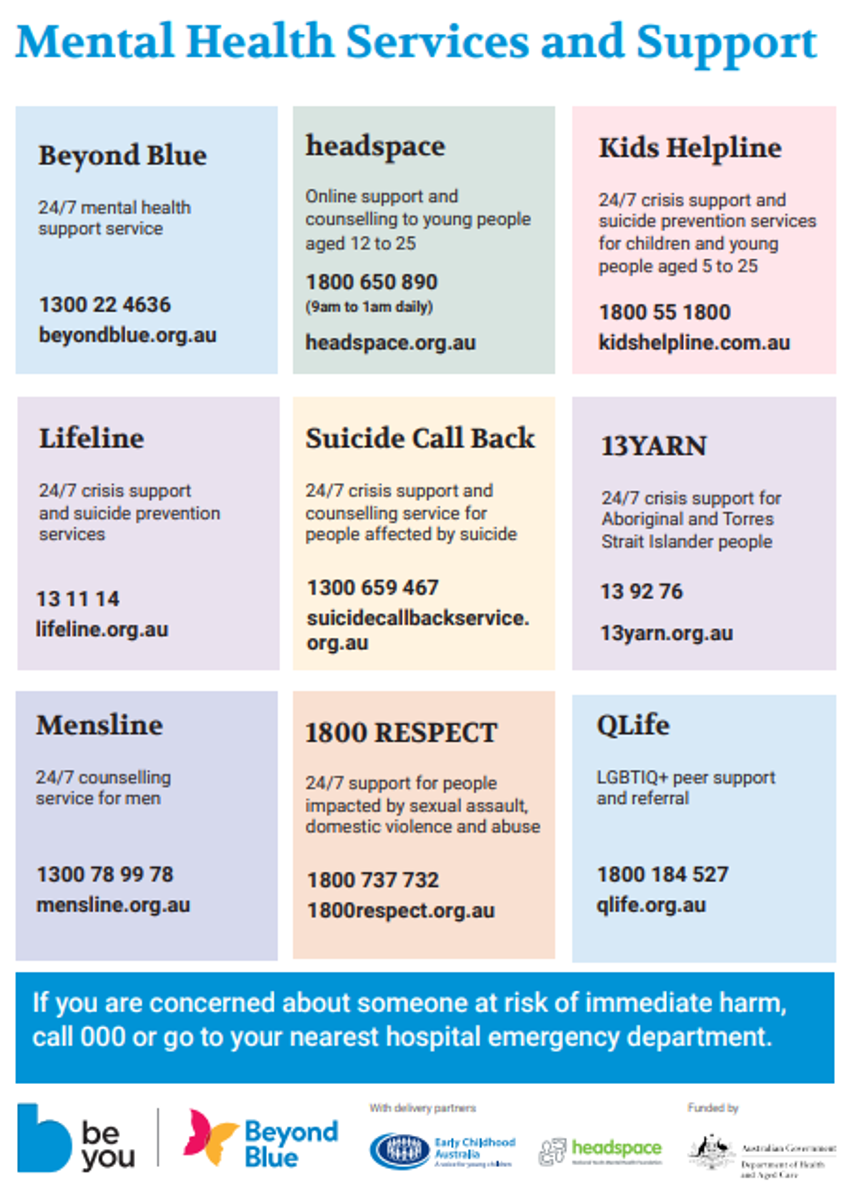Wellbeing

Helpful Resources
Positive wellbeing is essential for leading a fulfilling and balanced life. It influences how people think, feel, and act, impacting their ability to handle stress, build strong relationships, and make healthy choices. When education providers and families prioritise the mental, emotional, and physical health of our students and children, they are more likely to experience greater resilience, improved productivity, and a deeper sense of purpose within the community.
Our work within the Friendology program has continued throughout the year with students learning about social awareness, emotional literacy and strategies for navigating friendship challenges.
We have covered topics including ways to develop new friendships, tricky situations in friendships, positive coping strategies and help seeking conversations.
You can support and reinforce the work we are doing at school by taking advantage of the free resources available via the parent portal and the free family membership offered by URStrong. These can be accessed through the link below.
If you have general concerns for you child’s wellbeing but are not sure where to start, there are a wide variety of resources available for free, online. These resources, which are provided in the links below, are suited to different age groups, and target different areas of mental health and wellbeing. All resources have dedicated areas for both children seeking information, as well as parents and care-givers and the content is designed with this in mind. The sections that are targeted towards children, are written in age-appropriate language and contain content that is modified and considered.
Headspace – https://headspace.org.au/
EACH - https://www.each.com.au/about-us/
MoodGYM - https://www.moodgym.com.au/
Beyond Blue – https://www.beyondblue.org.au/
Kids Helpline - https://kidshelpline.com.au/
A child or young person's wellbeing can change moment to moment, day to day, year to year, and can be influenced by what’s happening in a specific moment and the actions they take. By being open-minded and engaging in discussions from an early age about things like complex feelings, positive and negative reactions, empathy and positive coping, we can begin to develop our student’s emotional literacy. As they move through more unpredictable and transitional stages of their lives, this positive attitude towards wellbeing will help them navigate any challenges that they may face.
As always, please feel free to reach out for more information if you have any concerns about your child’s wellbeing. I am contactable via compass, through the office or via email – louise.jarvis@education.vic.gov.au
Have a lovely weekend,
Louise Jarvis
Wellbeing Specialist Teacher

